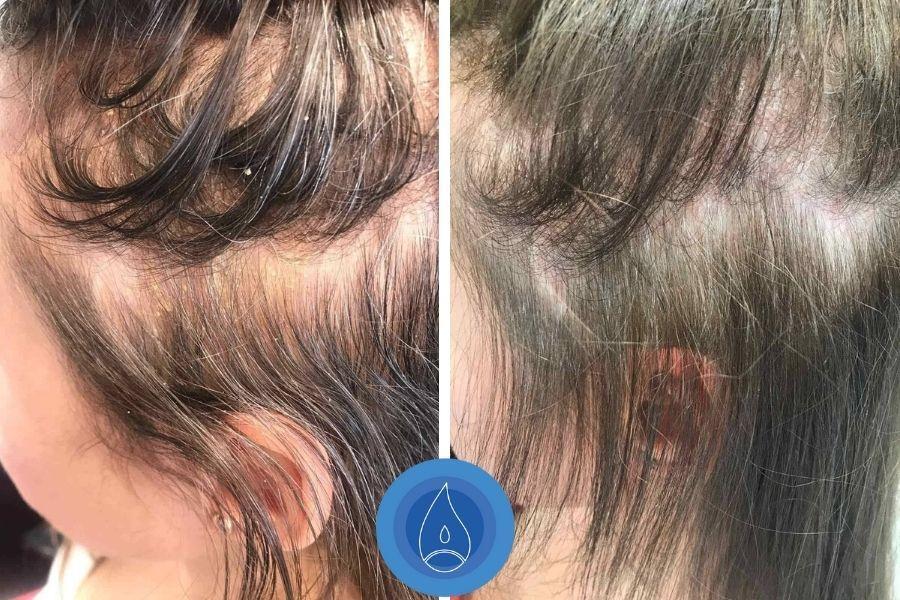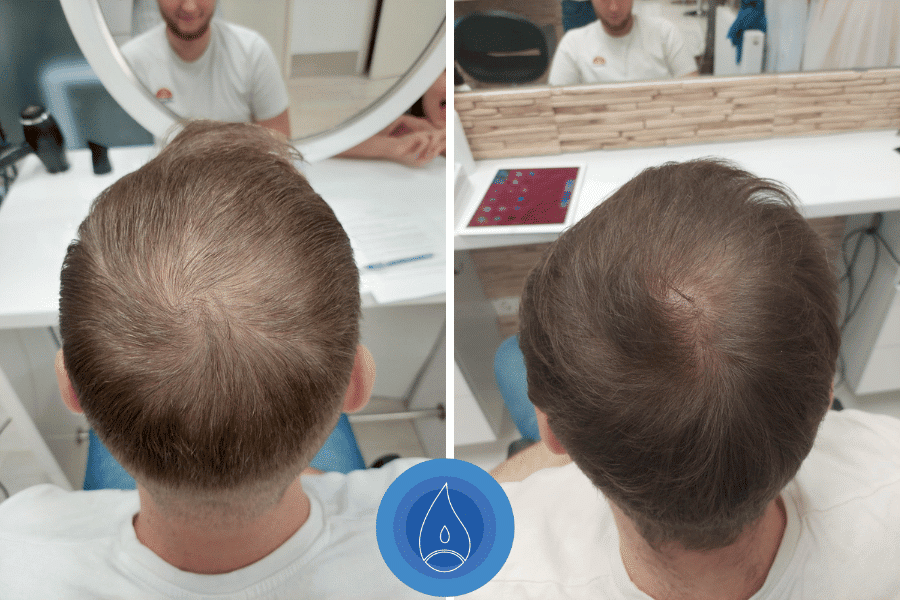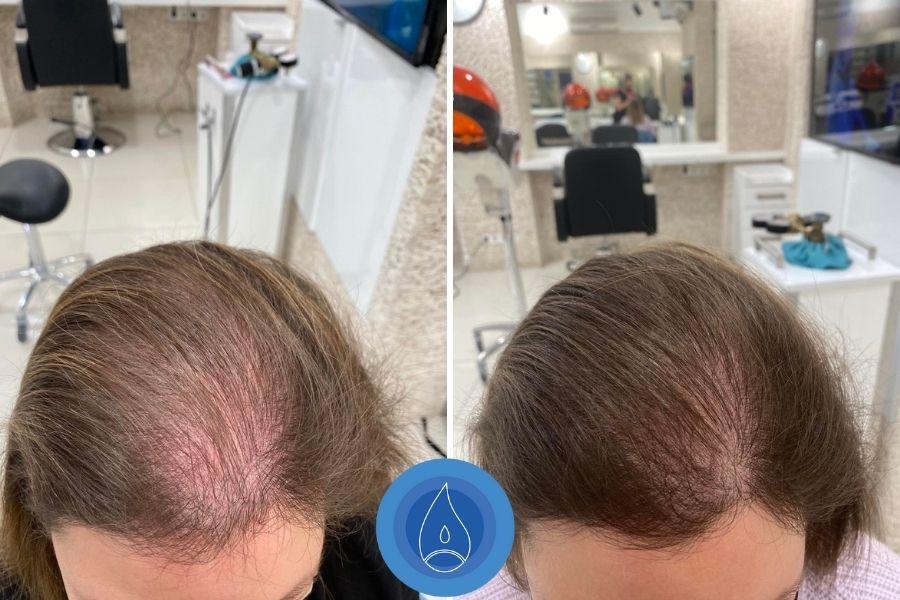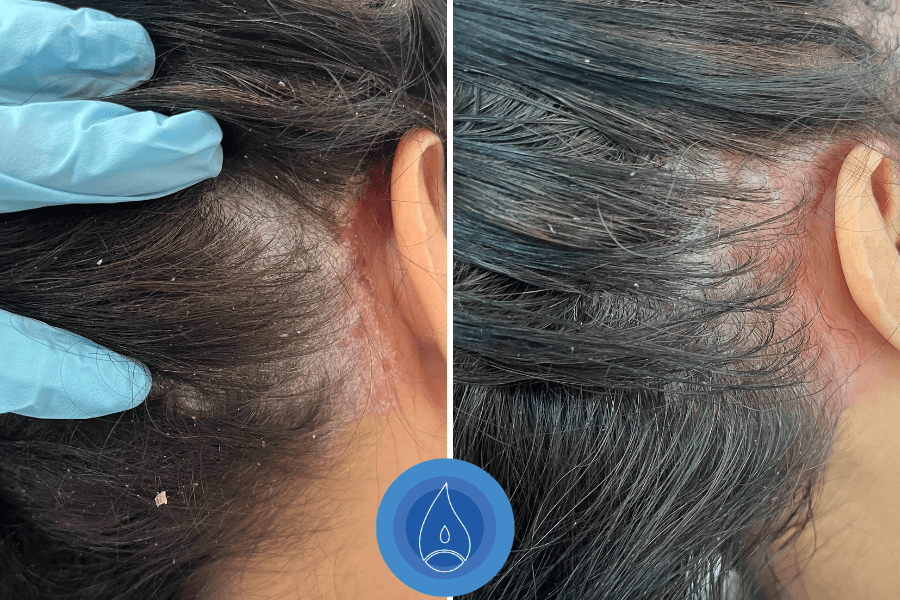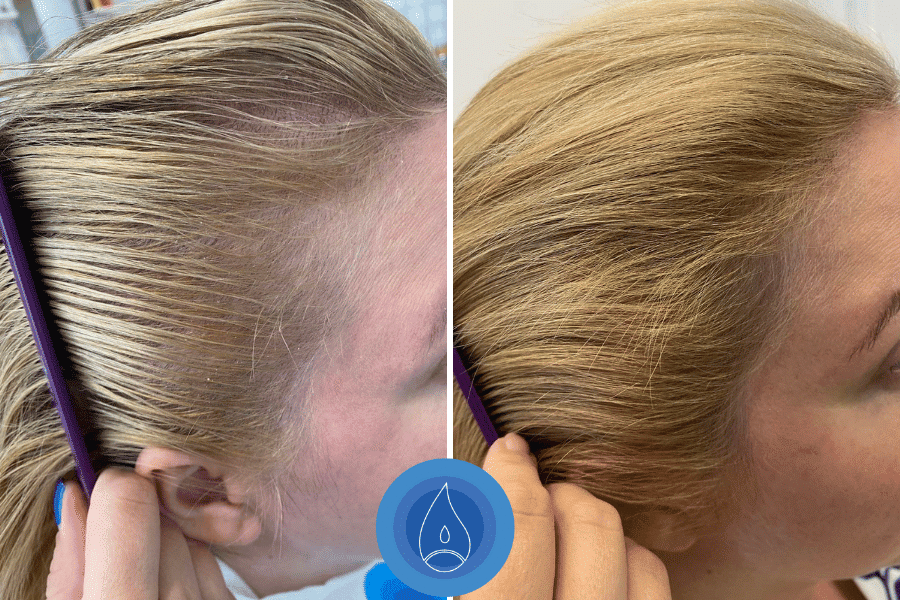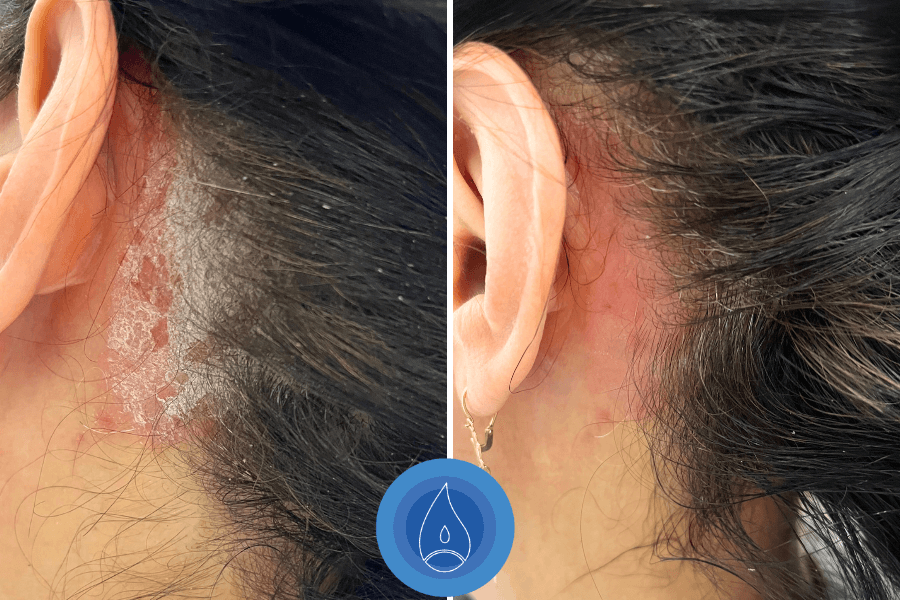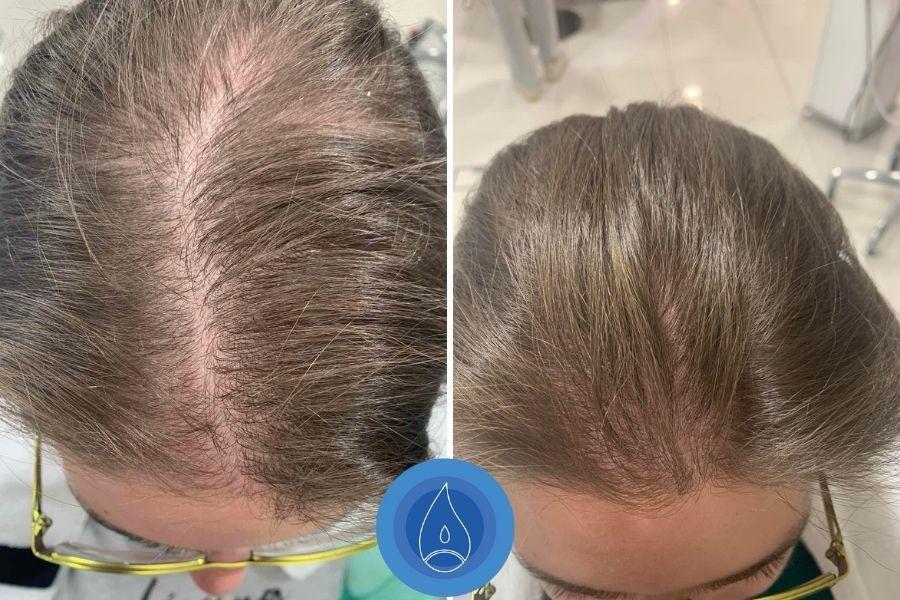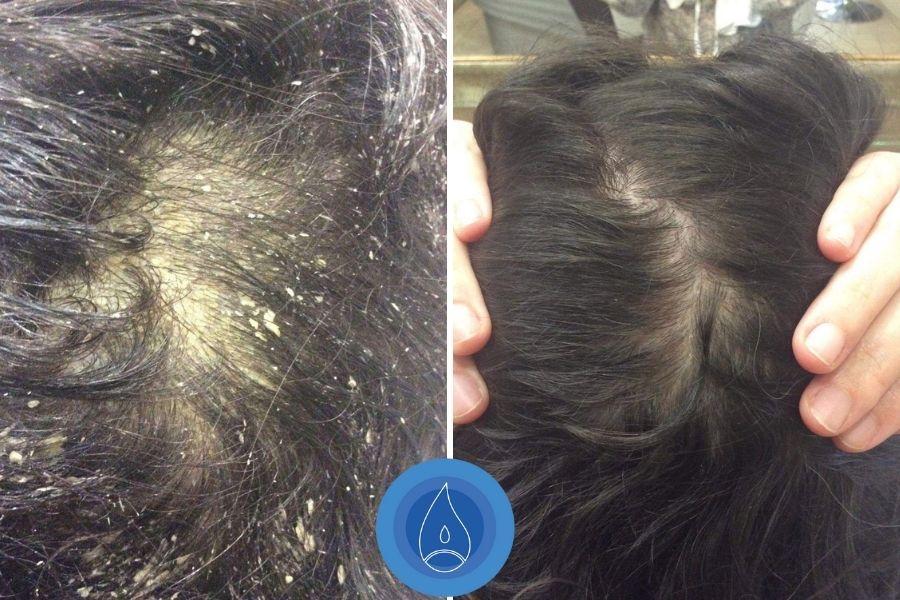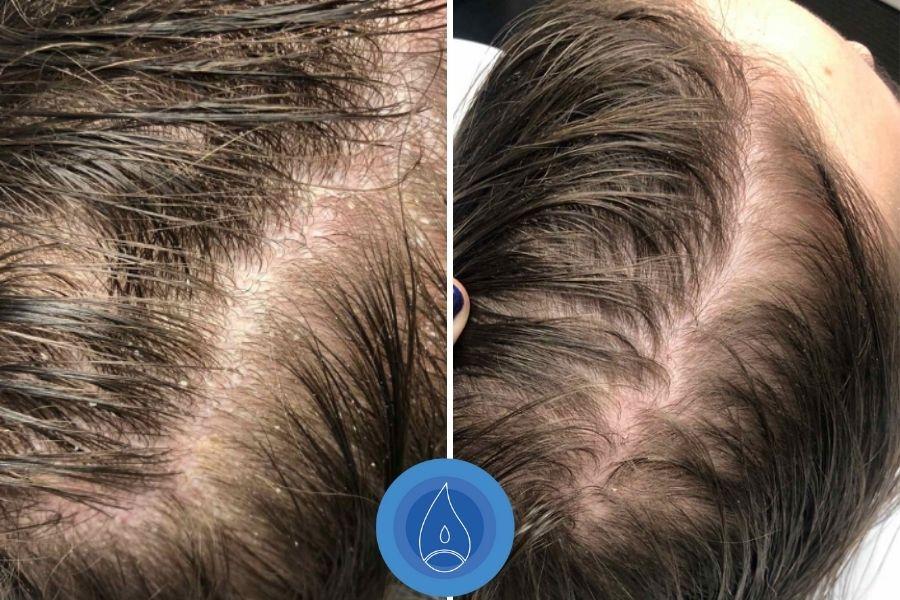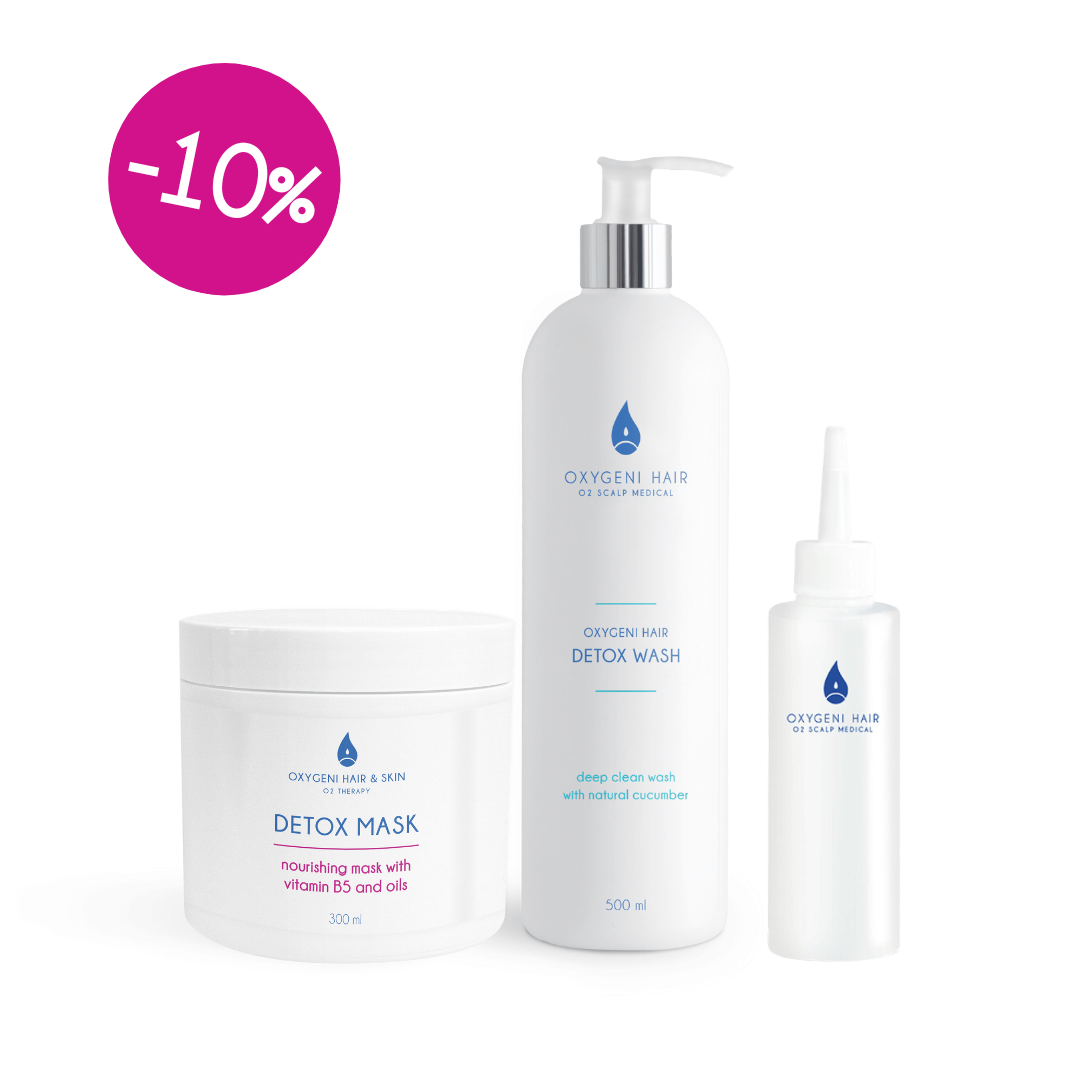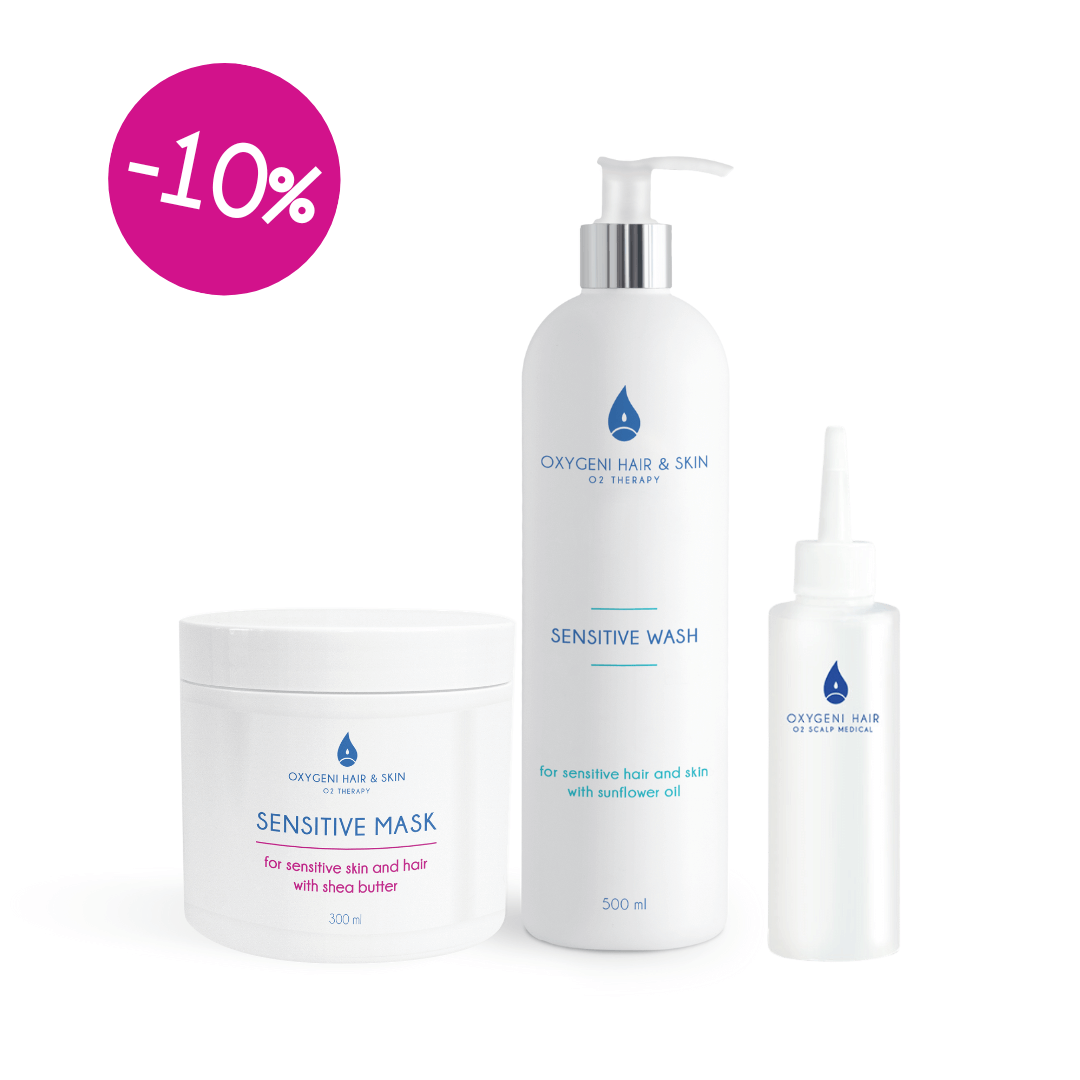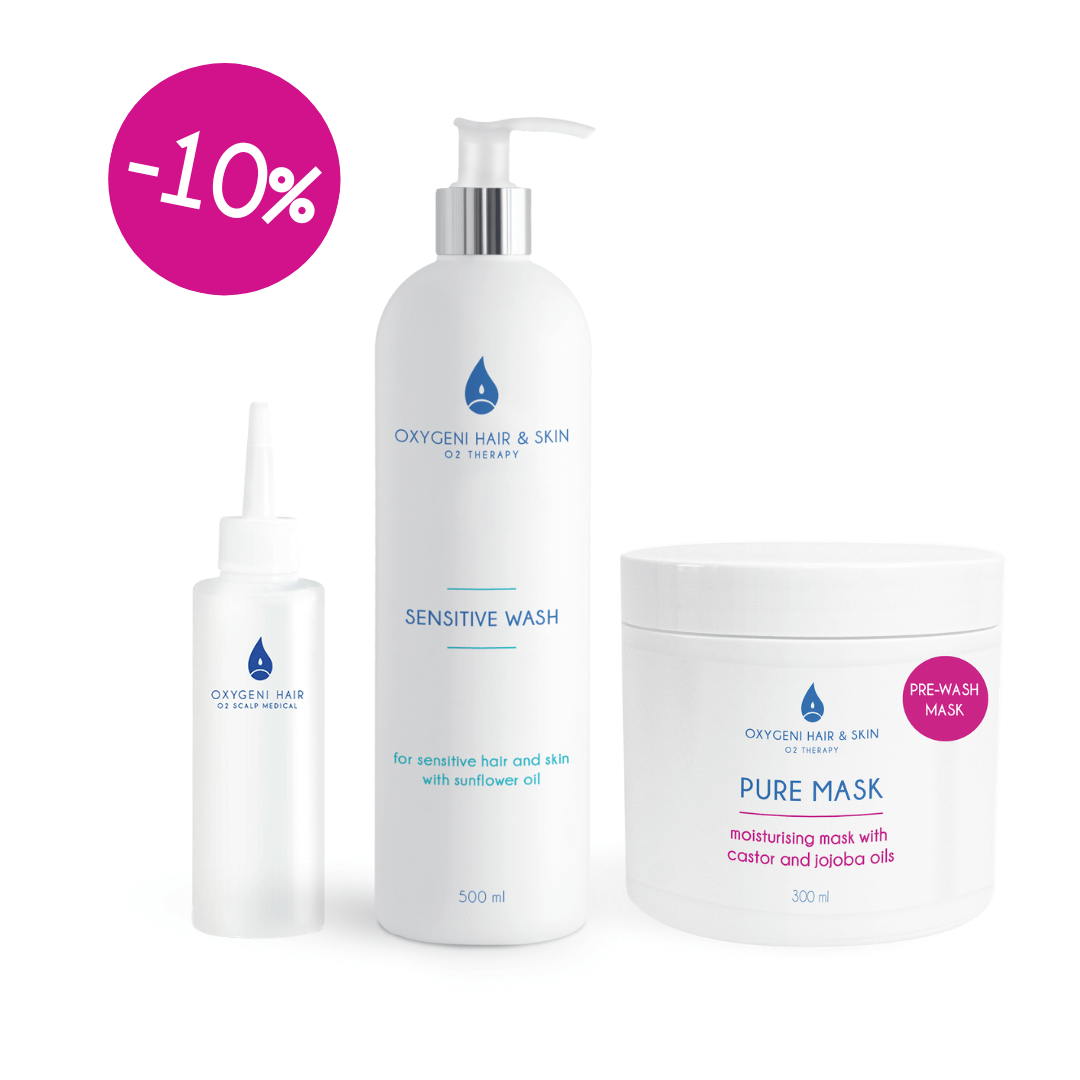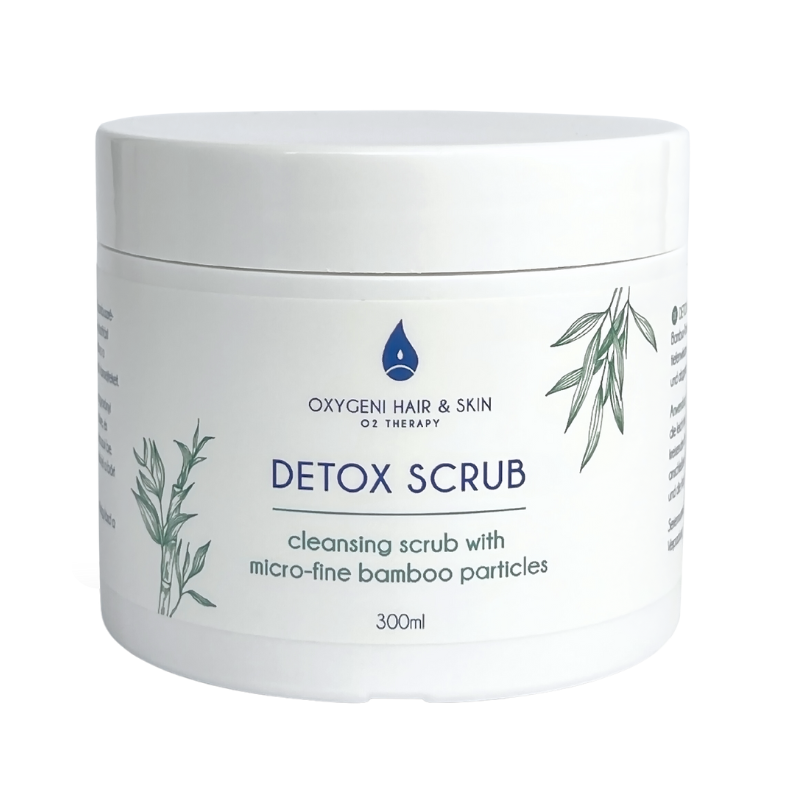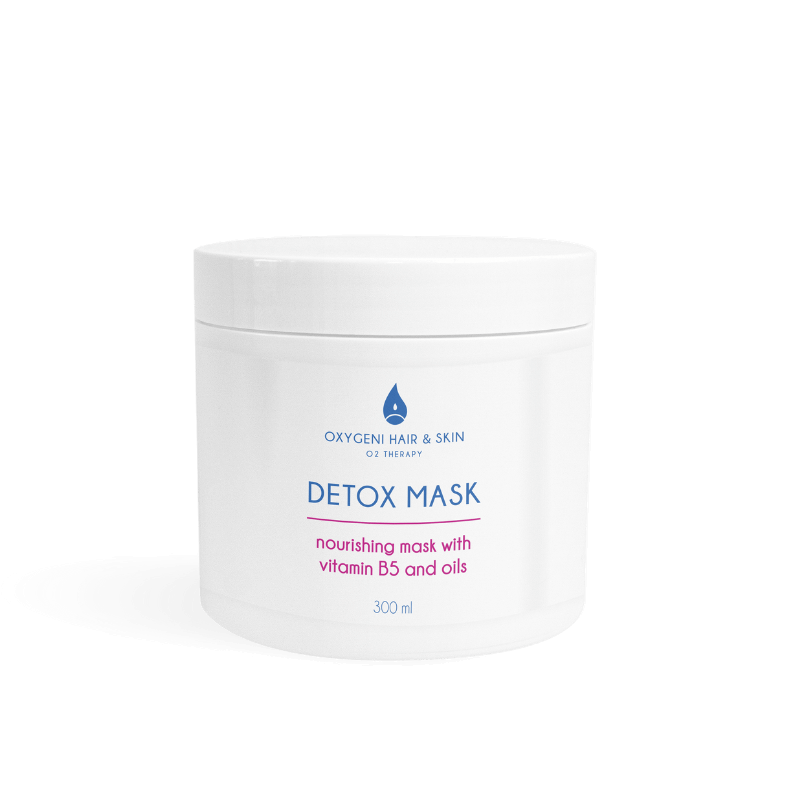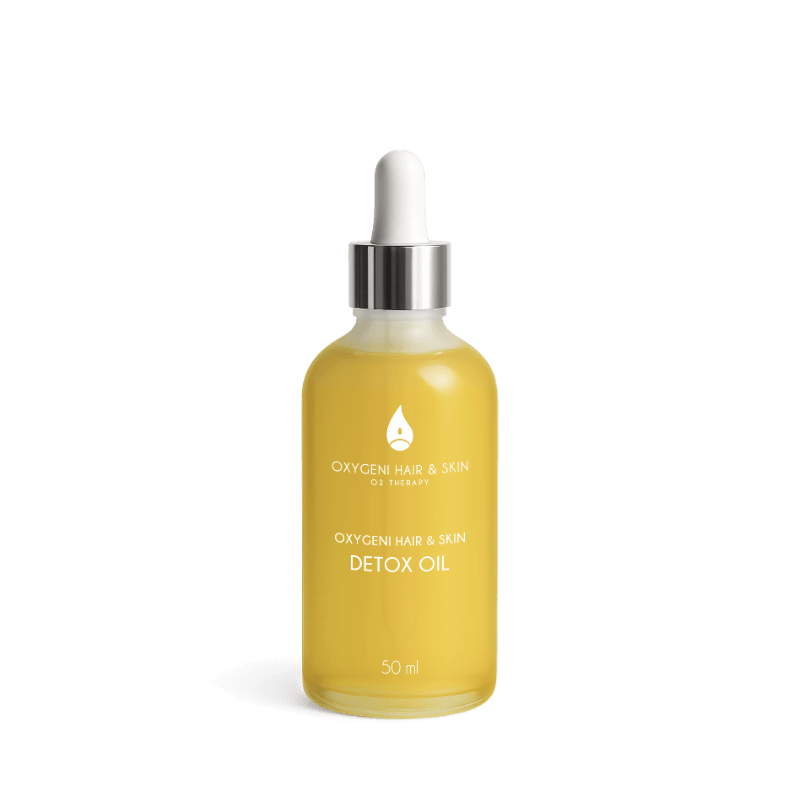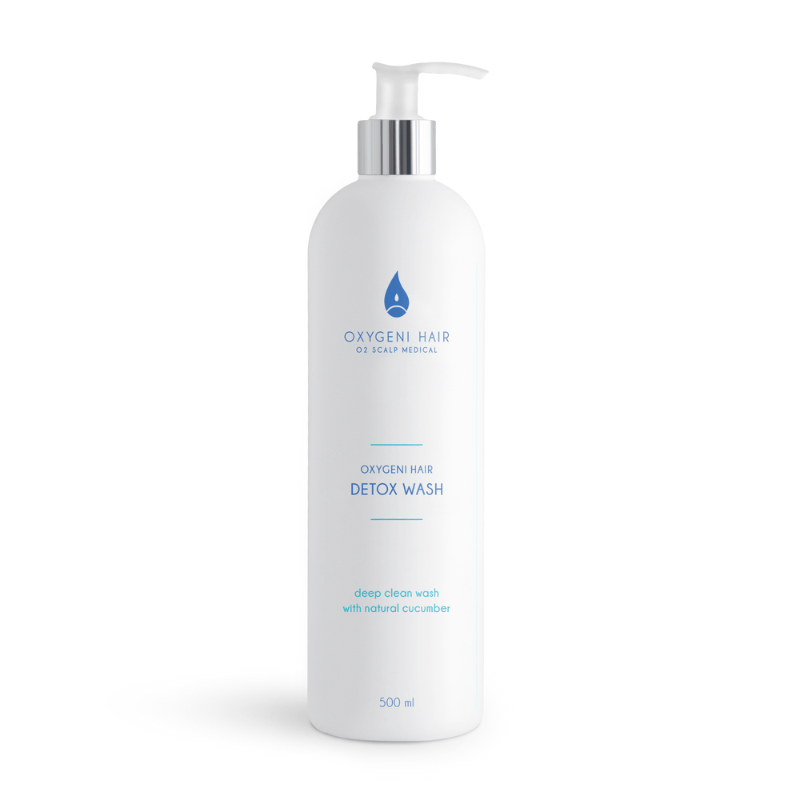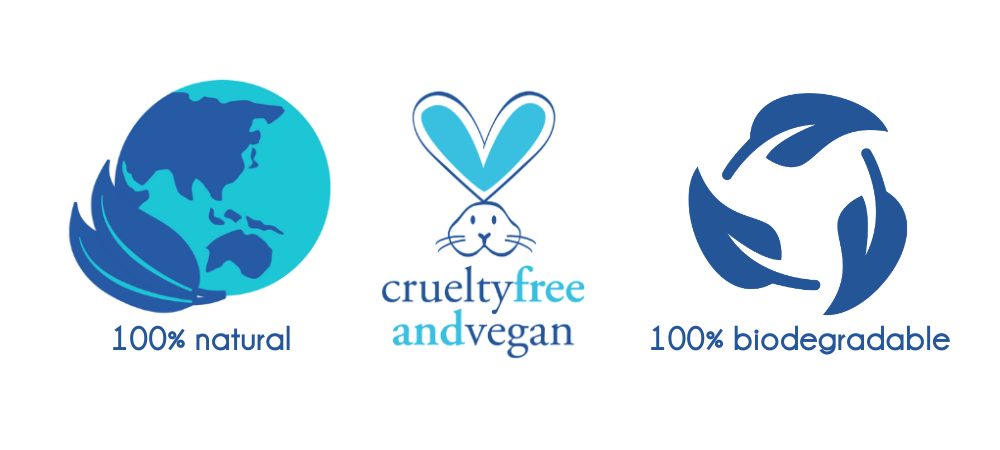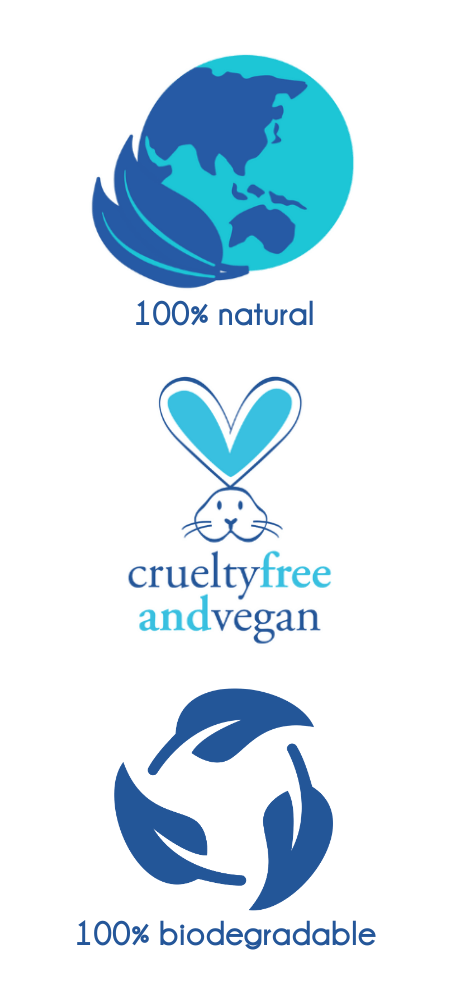Oily hair and scalp
Oily Hair and Scalp
How to treat oily hair and scalp?
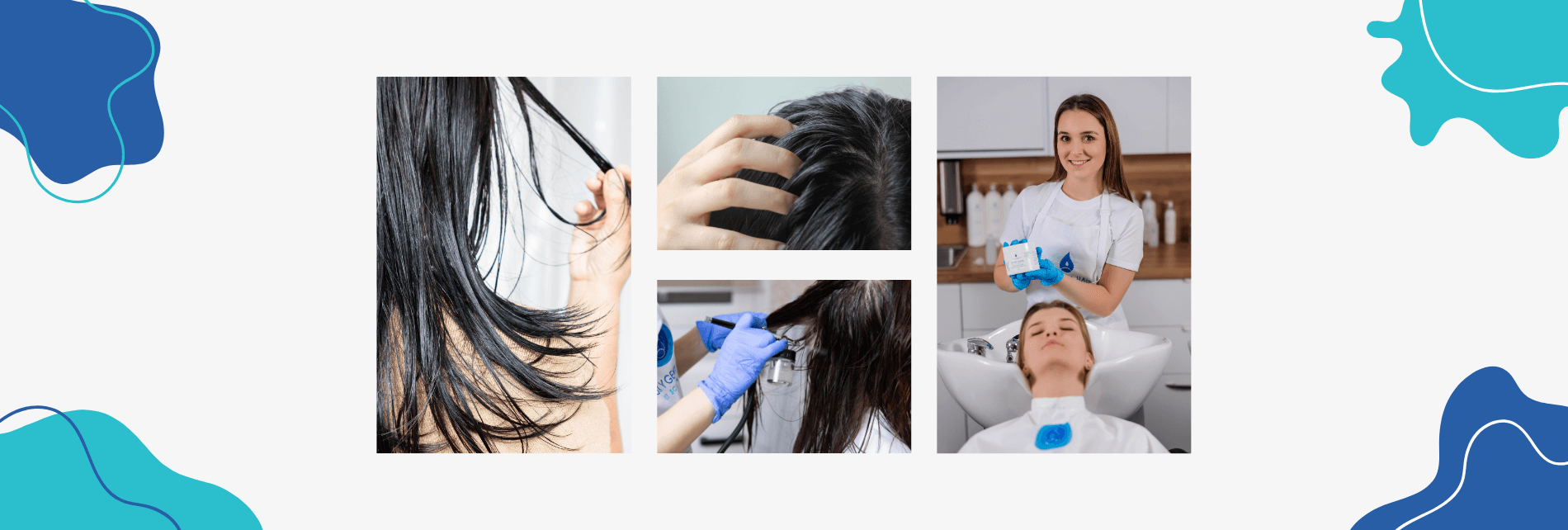
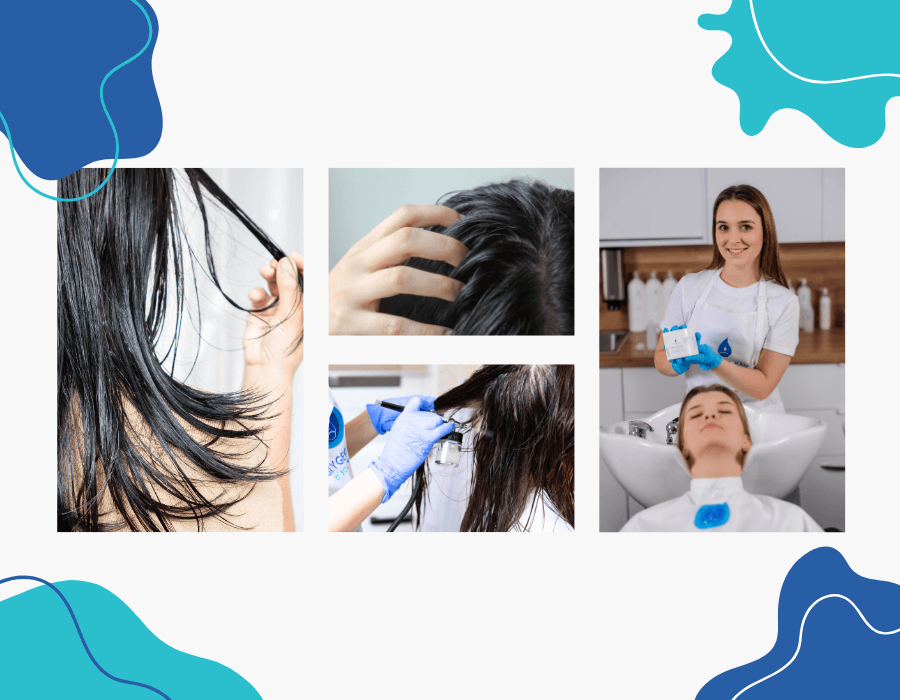
Oily hair and scalp make everyday life challenging for many of us. Unfortunately, this issue is often linked to genetics, though an unhealthy lifestyle or hormonal imbalances can also be contributing factors. Let’s explore the causes, symptoms, and treatment options for oily hair and scalp!
What causes oily hair and scalp?
The overactivity of sebaceous glands, which leads to oiliness, is often rooted in hereditary factors. Those whose parents also struggled with oily hair or skin are more likely to experience the same symptoms.
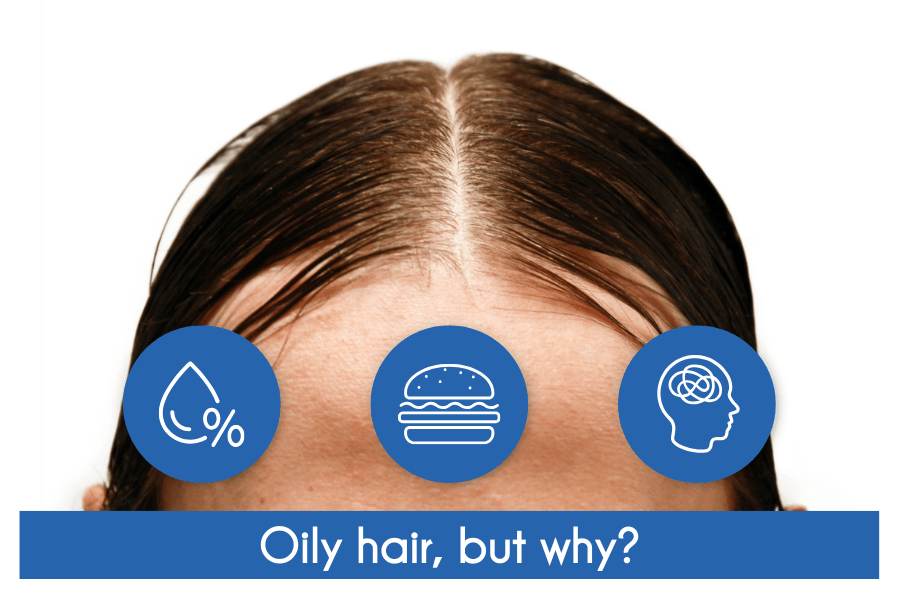
Environmental factors also play a significant role. High humidity and polluted air can stimulate sebaceous gland activity, leading to increased oiliness. Additionally, frequent hair washing or using unsuitable hair care products can worsen the problem. Cosmetics that clog pores further contribute to oily hair and scalp, so it’s important to pay attention to the ingredients in the products you use.
Diet and lifestyle also considerably impact the health of the skin and hair. Consuming greasy, sugary foods or following a diet low in vitamins and minerals can increase sebum production. Poor hydration and unhealthy eating habits negatively affect the skin’s condition, leading to overactive sebaceous glands and oiliness.
The problem may also be triggered by mental factors such as stress and anxiety. Hormones released during stress, like cortisol, can boost sebum production. A stressful lifestyle not only disrupts hormonal balance but can also lead to poor sleep patterns and unhealthy eating habits, further aggravating the condition of the scalp and hair. Adopting a healthy lifestyle and effective stress management techniques can help reduce scalp and hair oiliness.
Biological Processes – The development of oily hair and scalp
Oily hair and scalp are often the result of specific biological processes within the body. The following steps detail how the problem develops at the cellular level and in the context of overall bodily functions:
1.
Sebaceous Gland Function:
Sebaceous glands, located near hair follicles in the skin, produce sebum—a lipid-rich substance essential for hydrating the skin and hair and protecting them from external environmental factors.
2.
Hormonal Regulation:
Sebaceous gland activity is regulated by hormones, primarily androgens (such as testosterone). Androgens bind to receptors on sebaceous gland cells, stimulating sebum production. During puberty, menstrual cycles, pregnancy, or certain hormonal disorders, androgen levels may increase, leading to heightened sebum production.
3.
Increased Sebum Production:
Sebum-producing cells in the sebaceous glands (sebocytes) synthesize and release lipids, primarily triglycerides, waxes, and squalene. Excessive androgen activity causes an overproduction of sebum, which then reaches the surface of the skin.
4.
Clogged Pores:
Excess sebum on the skin surface mixes with dead skin cells and impurities, clogging the pores (hair follicle openings). This blockage creates an environment favorable for the proliferation of Propionibacterium acnes, a bacterium that can trigger inflammation.
5.
Inflammatory Response:
The accumulated sebum and bacteria in clogged pores can cause inflammation. The immune system’s response releases inflammatory mediators, such as cytokines, resulting in acne and other skin issues.
Symptoms
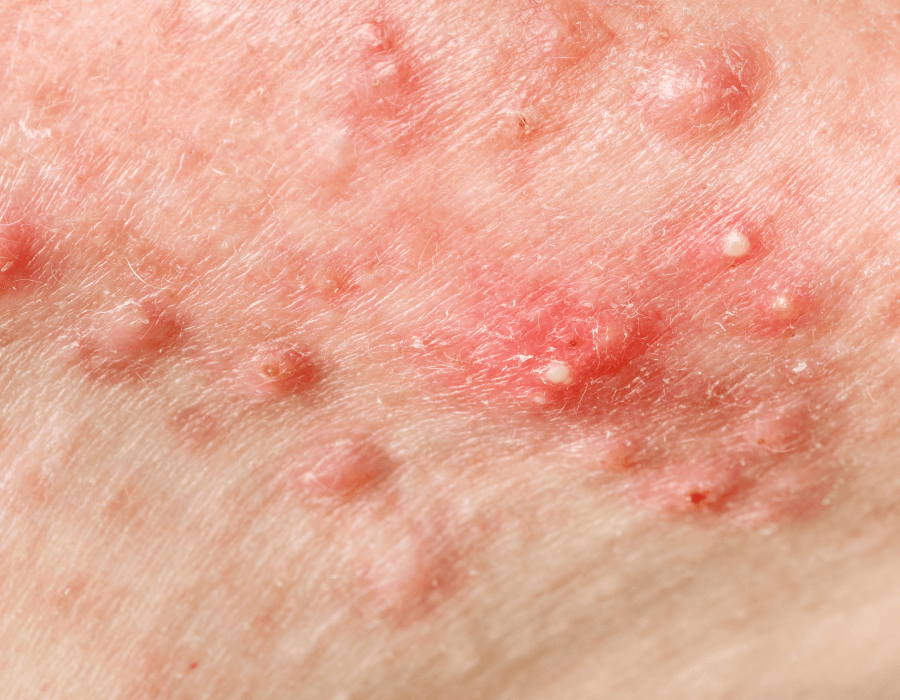
Acne and Blackheads
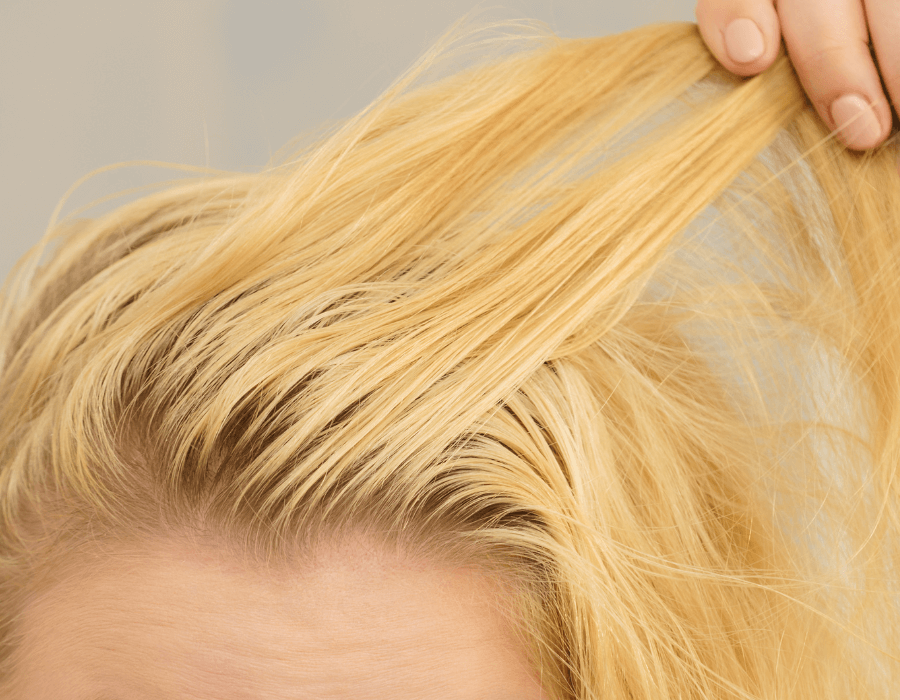
Oily Hair
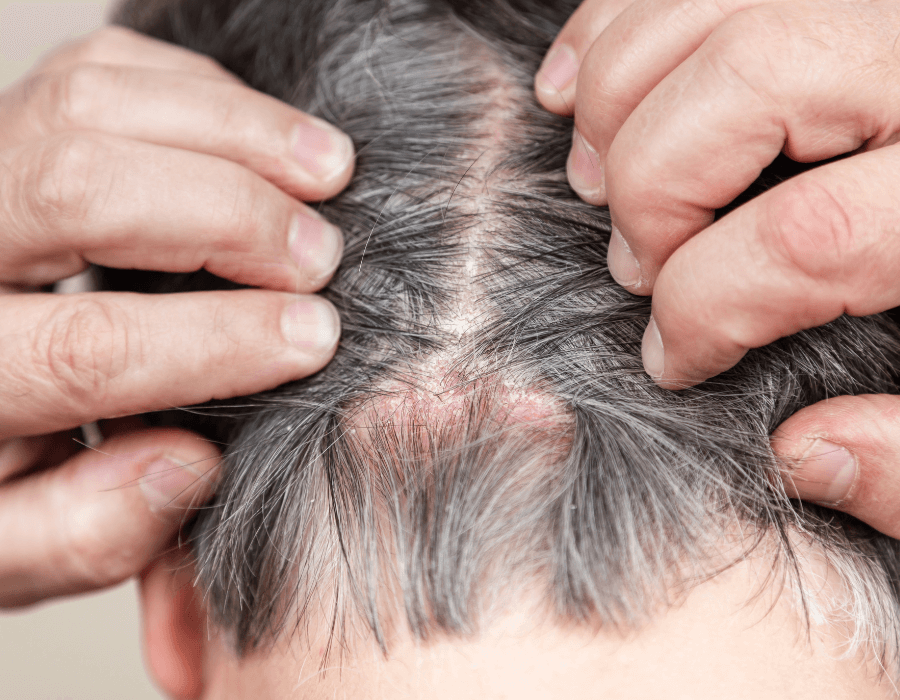
Scalp Irritation
Levels of oily hair and scalp
The issue of oily hair and scalp can manifest in varying degrees of severity, depending on how affected the scalp is. These levels are categorized as mild, moderate, and severe, each with its own characteristics and symptoms.
1. Mild Level
Hair begins to get oily one or two days after washing but remains manageable. The scalp may feel slightly itchy. This level is typically well-managed with proper hair and skin care products and the implementation of regular hygiene habits.
2. Moderate Level
Hair begins to get oily one or two days after washing but remains manageable. The scalp may feel slightly itchy. This level is typically well-managed with proper hair and skin care products and the implementation of regular hygiene habits.
3. Severe Level
Hair begins to get oily one or two days after washing but remains manageable. The scalp may feel slightly itchy. This level is typically well-managed with proper hair and skin care products and the implementation of regular hygiene habits.
What can worsen oily hair and scalp?
The development and aggravation of oily hair and scalp can be influenced by numerous external and internal factors. These factors, individually or collectively, contribute to the overactivity of sebaceous glands and the development of skin issues.
So, what are these factors?
Environmental factors
A damp, humid environment increases sebum production as the skin tries to maintain proper hydration.
Smog, dust, and other pollutants can clog pores, causing inflammation and acne.
High temperatures increase sweating and sebum production, while cold weather can cause dry skin, leading to overcompensation by the sebaceous glands.
Improper hair care
Washing your hair too often removes natural oils, causing the skin to compensate by producing more sebum. Infrequent washing allows accumulated sebum to clog pores.
Products containing oily, comedogenic ingredients can clog pores and worsen oiliness.
Using alcohol-based toners and soaps can dry out the skin, increasing sebum production.
Genetic predisposition
Oily skin and hair are often hereditary, meaning that skin issues present in the family are more likely to appear in descendants as well. Genetic predisposition affects the size and activity of the sebaceous glands.
Lifestyle factors
Fatty, sugary foods and a low-fiber diet can increase the overactivity of sebaceous glands. A deficiency in vitamins A, D, and E can also contribute to skin issues.
Drinking enough water helps maintain skin hydration and reduces sebum production.
Stress increases cortisol production, which boosts sebum production and can cause inflammation.
Restful sleep is essential for skin regeneration and maintaining hormonal balance.
Smoking and alcohol consumption worsen skin conditions, as these habits dehydrate the skin and increase inflammation.
Hormonal changes
During puberty, the levels of androgen hormones (such as testosterone) increase, which boosts sebum production.
Changes in hormone levels before menstruation often lead to increased sebum production and the development of pimples.
Hormonal fluctuations during these periods can also increase sebum production.
Medications, treatments, and health conditions
Steroid-based medications can increase sebum production and cause pimples.
Certain types of birth control can cause hormonal changes that affect the oiliness of the scalp and hair.
Women with PCOS often experience oily skin and pimples due to the overproduction of androgen hormones.
Diet and its connection to oily hair
Our diet has a significant impact on the condition of our hair, especially in the case of oily hair. Fatty and oily foods, such as fried and fast foods, can excessively increase sebum production, therefore, it’s advisable to avoid them. Similarly, sugary foods and drinks, such as cakes and sodas, not only increase insulin resistance but can also disrupt hormonal balance, worsening oily skin problems. Additionally, fatty dairy products can contribute to the deterioration of both hair and skin conditions.
However, consuming nutritious, healthy foods can significantly improve the condition of our hair. Fresh vegetables and fruits, especially leafy greens and berries, are rich in antioxidants and vitamins that support scalp health. Whole grains like oats and brown rice help stabilize blood sugar levels, which positively affects hair growth. Foods rich in omega-3 fatty acids, such as salmon, walnuts, and chia seeds, have anti-inflammatory effects that contribute to improving the condition of the scalp, thus helping to alleviate the oily hair problem.

How do hormones affect the scalp condition?
Pubertal changes
During adolescence, the production of androgens stimulates the skin to produce more sebum, resulting in oily skin on the face, scalp, and oily hair. Sebum and dead skin cells clog the pores, leading to acne, scalp irritation, and further oiliness.
Menstruation
Hormonal changes during the menstrual cycle can cause hormonal acne, oily scalp, and hair in women. Many women experience these symptoms just before, during, or after their period.
Menopause
During menopause, women’s estrogen levels decrease, disrupting the hormonal balance, which, similarly to the previous cases, can lead to increased sebum production, resulting in oily hair and skin.
Pregnancy
Pregnancy involves significant hormonal changes in a woman’s body, which can trigger various physical symptoms. One of these hormonal changes is increased sebum production, primarily triggered by elevated progesterone and estrogen levels.
How to maintain hormonal balance?
Regular exercise
During menopause, women’s estrogen levels decrease, disrupting the hormonal balance, which can lead to increased sebum production, resulting in oily hair and skin. Regular exercise helps maintain hormonal balance and reduce these effects.
Healthy diet
Consuming omega-3 fatty acids, zinc, and vitamins supports hormonal balance, promoting better skin and scalp health.
Adequate sleep
Sufficient and restful sleep is essential for regulating hormones and reducing stress.
How stress exacerbates the problem?
Stress has a significant impact on the condition of the scalp and can increase oiliness. When we are under stress, our body produces more cortisol, which affects the functioning of the sebaceous glands. Due to the elevated cortisol levels, these glands may produce more sebum, making the hair and scalp oilier. Additionally, stress can reduce the resilience of the scalp’s natural protective layer, making it more susceptible to inflammation and irritation. Together, these factors exacerbate issues related to oily hair and scalp can contribute to the hair becoming clumped, weighed down and harder to manage.
- Meditation and yoga: These activities help reduce stress and improve overall mental health.
- Regular exercise: Exercise naturally lowers stress hormone levels.
- Proper time management: Efficient scheduling and increasing the time allocated for rest can also help reduce stress.
Tips for reducing stress:
How to treat oily hair and scalp at home?
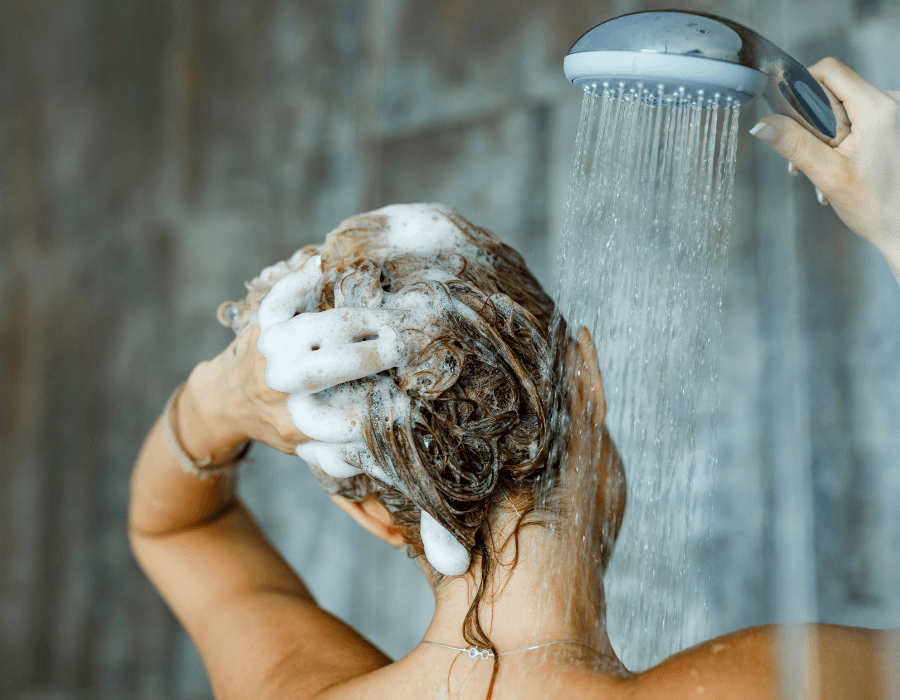
Regular cleaning
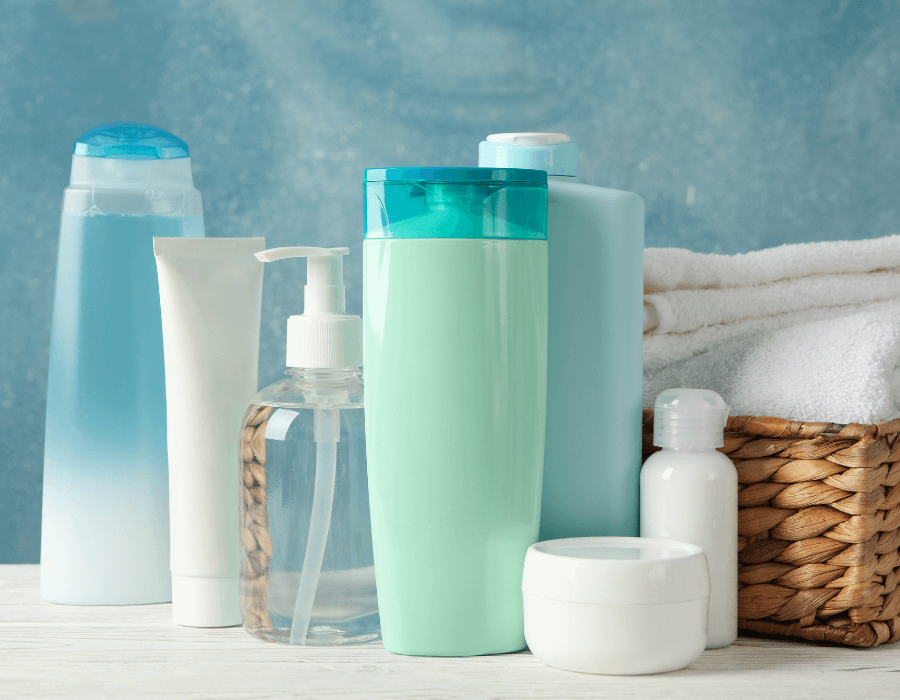
Using gentle products
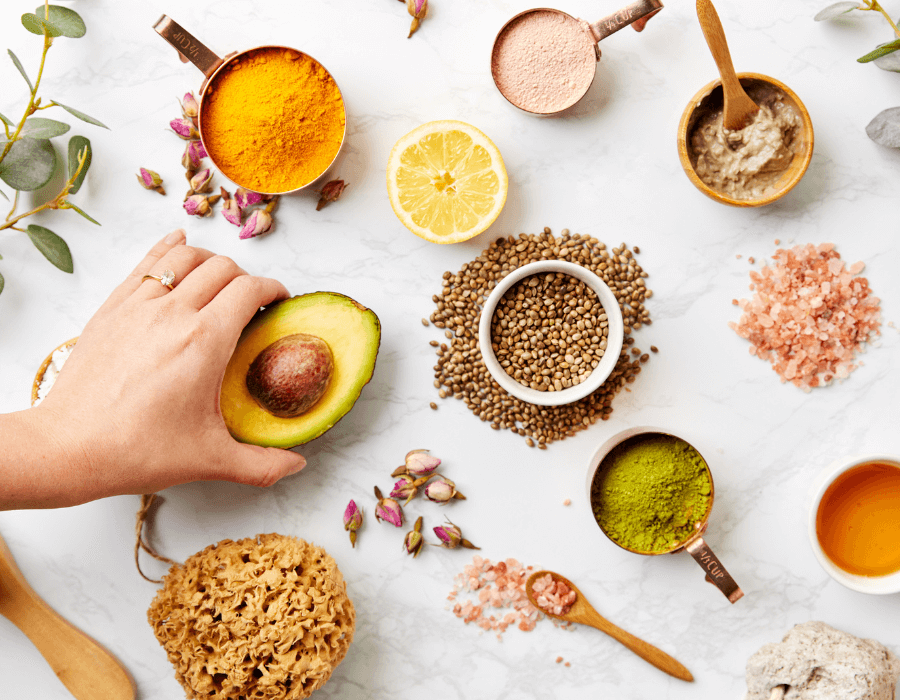
Using natural ingredients
OUR SOLUTION: OXYGEN THERAPY
TREATING OILY HAIR AND SCALP WITH OXYGEN THERAPY
Treating oily hair and scalp can be tricky, as most shampoos and treatments often provide only short-term relief. However, oxygen therapy offers a revolutionary solution that deeply and naturally helps regulate scalp sebum production. During the treatment, pure, concentrated oxygen is applied directly to the scalp, which not only deeply cleanses and refreshes it but also stimulates blood circulation in the hair follicles, supporting hair growth and scalp health.
Oxygen therapy naturally reduces oiliness, keeping the hair fresh and light for longer. If you’re looking for a natural, gentle, but effective solution for treating oily hair, try oxygen therapy!
Why book an oxygen therapy scalp and hair treatment?
• Its anti-inflammatory properties help alleviate inflammatory processes on the scalp.
• It promotes cell regeneration and speeds up the healing process.
• The treatment is completely painless.
• It is based on 100% natural active ingredients, completely free from chemicals.
• The treatment is entirely risk-free, with no side effects.
THE ROLE AND IMPORTANCE OF NATURAL COSMETICS
Natural cosmetics are becoming increasingly popular compared to traditional cosmetics. These products are free from synthetic chemicals such as parabens, sulfates, artificial fragrances, and colorants, which can cause irritation and allergic reactions. These chemicals often dry out the skin and hair or clog pores, worsening oiliness.
In contrast, products made from natural ingredients are rich in vitamins and antioxidants that nourish and protect the scalp and hair. Their manufacturing processes are generally more environmentally friendly, as they use fewer pollutants and less plastic packaging. Additionally, natural ingredients break down more easily, reducing environmental impact.
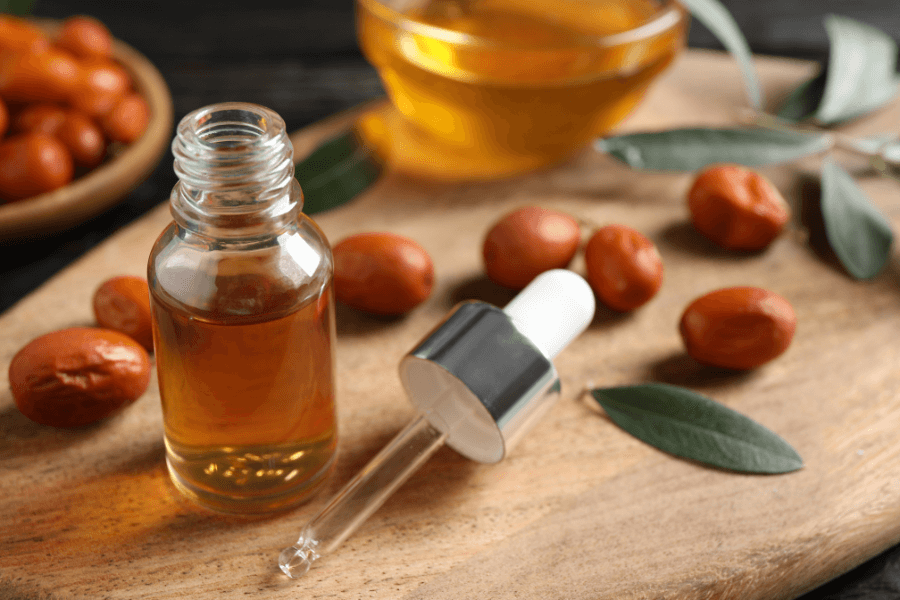
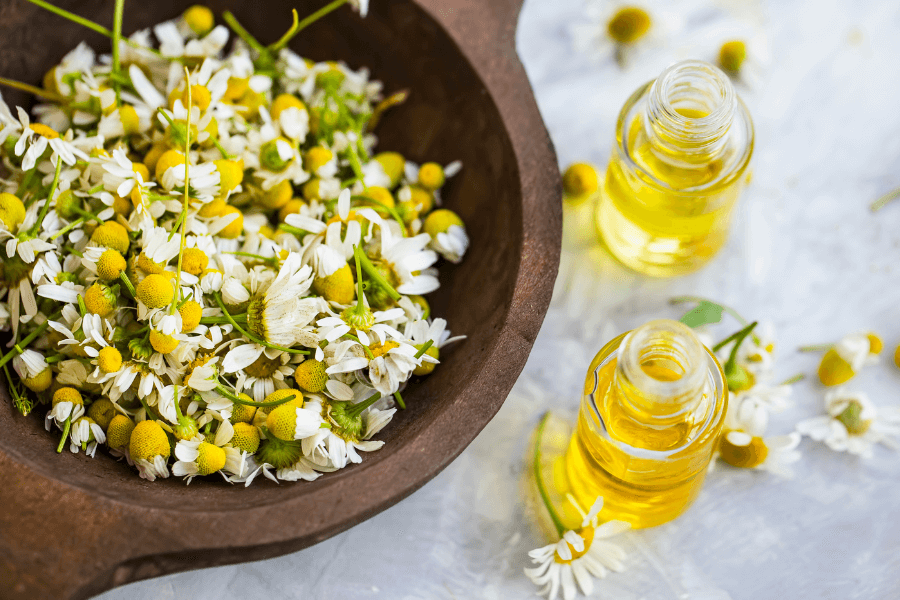
Natural active ingredients for treating oily hair and scalp:
Tea Tree Oil: Tea tree oil, extracted from the leaves of the tea tree, has antibacterial properties. It stimulates blood circulation, promotes hair growth, and helps reduce dandruff and oiliness of the scalp. Thanks to its anti-inflammatory properties, it also alleviates symptoms of eczema and psoriasis. It is excellent for treating oily, acne-prone skin as it reduces inflammation and lightens existing scars.
Aloe Vera: Aloe vera is rich in proteolytic enzymes that remove dead skin cells from the pores of the scalp. Its alkaline properties help maintain the pH balance of the scalp and hair, keeping the hair hydrated by locking in moisture. Due to its antifungal properties and enzymatic breakdown of skin cells, aloe vera helps reduce dandruff formation on the scalp. It can also help treat scalp issues like psoriasis and imbalances in sebum production.
Jojoba Oil: Jojoba oil has water-retaining properties: it forms a protective layer on the skin and helps retain moisture, making it an excellent moisturizer. It closely resembles the skin’s natural sebum, regulating sebum production while hydrating both the skin and hair. It doesn’t clog pores, allowing the skin to breathe, making it suitable for oily, acne-prone, and inflammation-prone scalps. Additionally, jojoba oil is highly effective for oily, acne-prone skin, due to its anti-inflammatory properties.
Chamomile: Chamomile has soothing and anti-inflammatory properties, helping to reduce irritation and redness. It can be used on all skin types, but it is especially recommended for sensitive skin. It helps maintain a youthful appearance. It promotes wound healing, reduces inflammation with its antibacterial properties, and calms the skin. Chamomile oil penetrates deeper layers of the skin, where it exerts its beneficial effects.
Try Our 100% Natural Products!
For long-term solutions to oily hair and scalp care, 100% natural, chemical-free products are the way to go. These products made from natural ingredients not only regulate sebum production but also protect the scalp from irritation. Due to being chemical-free, the risk of allergic reactions is reduced, while the natural active ingredients support the restoration of a healthy balance for the scalp and hair.
Our products are ideal for oily hair and skin care and can be easily incorporated into your daily hair and skincare routine. Here are some products that can help you reduce oiliness and achieve long-lasting results.
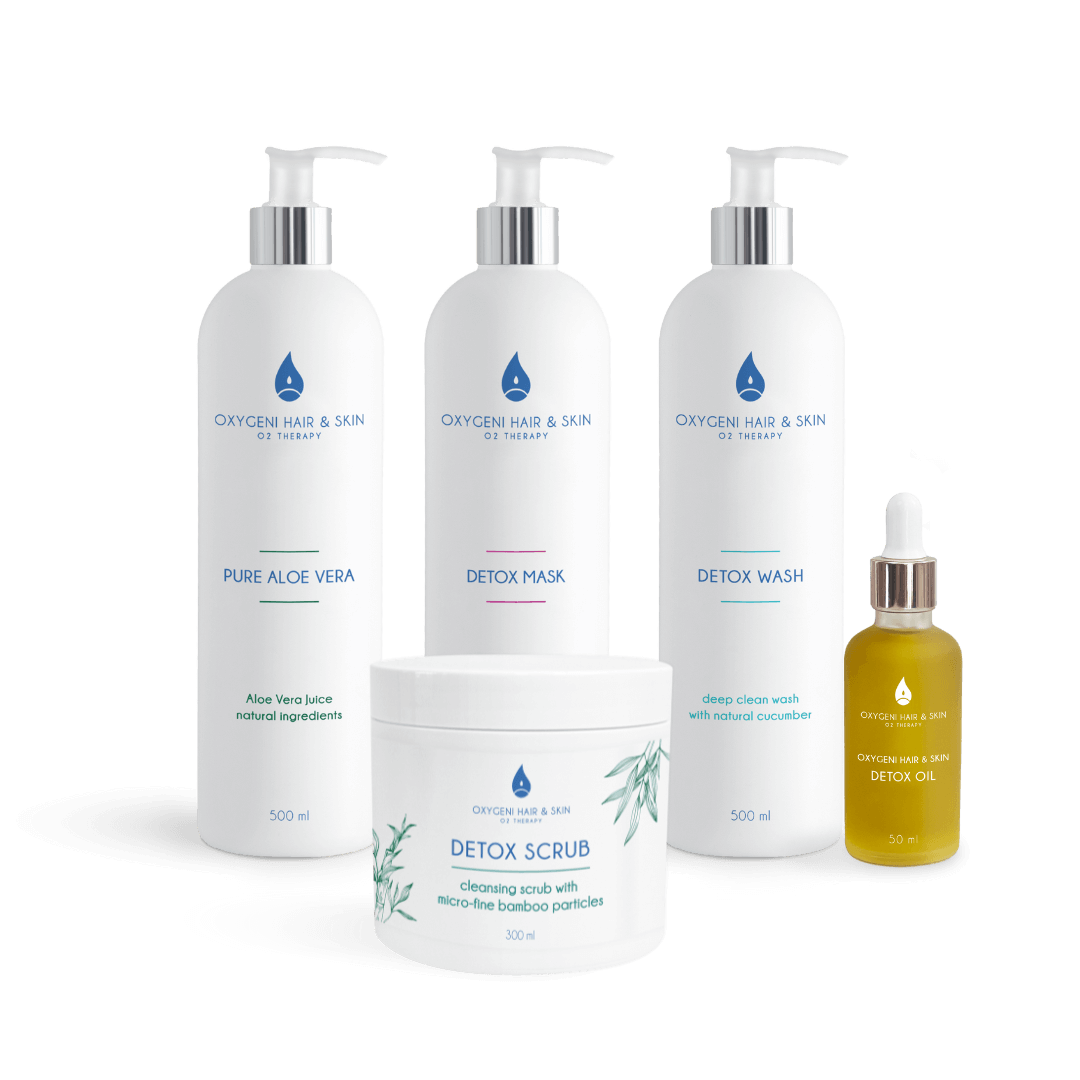
Recommended products for treating oily hair and scalp:
The products designed for oily hair and scalp treatment can bring significant improvements if you use them as part of your skin and hair care routine. These products help regulate sebum production, refresh the scalp, and contribute to the healthy appearance of the hair. The more comprehensive solutions offered by our oily hair and scalp bundles provide effective support for the long-term treatment of these concerns.
The main active ingredient in Detox Wash is cucumber extract, which regulates sebum production, making it perfect for oily scalps and skin. It soothes the skin and has a cleansing and tightening effect, also addressing pigment spots. The anti-dandruff shampoo helps combat dandruff and prevents its recurrence.
Recommended for: Oily, inflamed scalp issues, skin problems.
Detox Mask nourishes the hair and scalp with Vitamin B5 and cucumber extract. It helps restore the pH balance while deeply nourishing the hair strands. It is particularly recommended for oily scalps and dry, chemically damaged, or bleached hair ends.
Recommended for: Oily scalps, chemically treated, colored, or damaged hair.
For inflamed, oily scalps, Detox Scrub helps reduce sebum production and clogged pores. In cases of dry, flaky scalp problems, the scalp scrub removes dry, dead skin cells that cause these issues and promotes skin hydration.
Recommended for: Psoriasis, oily hair, dandruff, hair loss, atopic dermatitis, fungal infections, folliculitis, dry scalp, seborrhea.
The detoxifying skin and hair oil, with tea tree and rosemary oil as its main ingredients, contributes to the detoxification of the scalp and skin, as well as the reduction of inflammatory processes. Detox Oil is an ideal solution for overinfected, inflamed, and damaged skin. Due to its composition, it has a cleansing and hair growth-stimulating effect, soothing the skin and reducing inflammation.
Recommended for: Overinfected, inflamed, irritated, sensitive, or dehydrated scalps.
Pure Aloe Vera is an effective carrier that quickly and deeply absorbs into the skin, making it perfect for skin problems. It soothes and hydrates sensitive skin, reducing irritation. When mixed with serums and oils, Pure Aloe Vera helps these products reach deeper skin layers more easily and quickly without leaving a greasy or oily residue.
Recommended for: Hair loss, dandruff, oiliness, and psoriasis. It has intense hydrating, healing, soothing, and regenerating properties, suitable for all skin types.
We recommend the following bundles for oily concerns:

